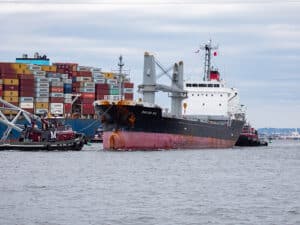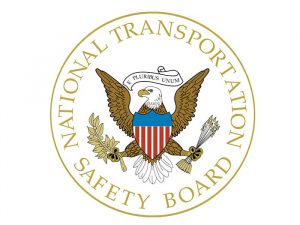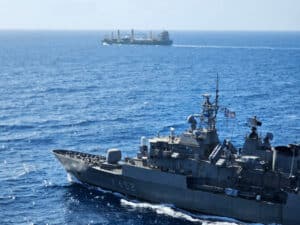
Beach renourishment feeds GLDD revenues
Written by Nick Blenkey
NOVEMBER 6, 2013 — Reporting reports financial results for the three and nine months ended September 30, 2013, Great Lakes Dredge & Dock Corporation (NASDAQ:GLDD) CEO Jonathan Berger said, “For the three months ended September 30, 2013, Great Lakes reported Revenue of $198.8 million, Net income of $1.4 million and Adjusted EBITDA of $19.6 million.
“Our dredging segment activity increased after a slow second quarter, driven by $54.4 million of coastal protection revenue primarily related to Superstorm Sandy work in New Jersey, New York and Delaware. Coastal protection revenue increased by more than 150% compared to third quarter last year when activity was more in line with the normal seasonal activity for this type of work. Our Terra Contracting (“Terra”) and Rivers & lakes teams worked together throughout the quarter on a project in the Midwest valued at approximately $30 million and this work will continue through the rest of 2013. This remediation project and the increase in coastal protection revenue combined with solid results in domestic capital and foreign dredging helped drive third quarter results.
“Our dredging segment won $580 million, or 55%, of the domestic dredging bid market through the first nine months of 2013. Year-to-date in 2013, over $400 million of coastal protection work has been bid, nearly double the amount bid in all of 2012. Great Lakes has been awarded over 56% of these projects. Much of this work was funded by a special appropriations bill passed in response to Superstorm Sandy to restore miles of coastline damaged by this epic storm. Our win rate this year was also driven by the award of the first phase of the PortMiami project for $122 million.
“Throughout the third quarter, we continued to focus on our historical demolition business. We have been pleased with the strides we have made to improve our internal control environment; however, achieving profitability in this unit remains challenging. We previously stated that if we were unable to return to profitability in this business, we would examine our options. We are currently assessing strategic alternatives for our historical demolition business. We are engaging a financial advisor to help us evaluate our alternatives. The companies in this part of our historical demolition segment offer valuable services, primarily in the Northeast region, but they may be better served under a different ownership structure.”
OUTLOOK
Mr. Berger concluded, “We are pleased with the performance our dredging segment and Terra remediation business this quarter and expect this to continue in the fourth quarter. Backlog is at a record high and short term bidding activity remains strong, which will drive results for the next several quarters. As I mentioned, we are evaluating strategic alternatives for our historical demolition business.
“In October, the House passed the Water Resources Reform and Development Act of 2013 by an overwhelming majority. This bill includes language that will require more money from the Harbor Maintenance Trust Fund be spent on maintenance dredging over time. The Senate passed its version of the bill earlier this year. We expect the Senate and the House bills to be reconciled in conference soon and the White House has already indicated support for the legislation. We were very pleased that the first piece of legislation passed after the Federal Government shutdown was an infrastructure bill that will help drive funding to our markets.
“The third quarter was active again for bidding, bringing the year-to-date domestic dredging bid market total to $1.1 billion for the year, of which Great Lakes won 55%. The 2013 market has been driven by over $400 million in coastal protection work, primarily in response to Superstorm Sandy, as well as an increase in capital projects. We had previously announced that we were low bidder on an $81 million coastal restoration project that was subsequently rebid at the end of October. We were not successful on this rebid. Although disappointed we did not win this rebid, there are several other coastal restoration projects on the horizon for which Great Lakes is well positioned. We also expect more Sandy work will be bid in 2014 for long term coastal protection projects. Finally, our TerraSea joint venture was awarded its first contaminated sediment remediation dredging project on the Passaic River in New Jersey and operations ramped up in the third quarter.
“We continue to actively look for projects in the Middle East and other international markets. We are continuing negotiations on a $100 million project in that region, which has been a slow process. It is important that we book work internationally to utilize our fleet of vessels.”
ATB DREDGE
“We are currently in final negotiations with two to build our new ATB dredge,” said Mr. Berger. “Although we anticipate incurring increased costs to complete the ATB, our analysis shows the vessel remains a good economic investment that will provide strong returns to the company.”
GLDD’s version of what went sour in its original plan to build the ATB Dredge at Signal International is this:
“In 2012, the Company contracted with a shipyard to perform the functional design drawings, detailed design drawings and follow on construction of a new Articulated Tug & Barge (“ATB”) Trailing Suction Hopper Dredge. In April 2013, the Company terminated the contract with the shipyard for default and the counterparty sent the Company a notice requesting arbitration under the contract on the Company’s termination for default, including but not limited to the Company’s right to draw on letters of credit that had been issued by the shipyard as financial security required in the contract. In May 2013, the Company drew upon the shipyard’s letters of credit related to the contract and received $13,600. As the matter is currently in arbitration, the Company has recorded the receipts from the letters of credit as a long-term liability and intends to use the proceeds to offset current and future costs of the ATB that are a result of the contract default, among other things. The Company cannot be assured of the outcome of the arbitration. The Company intends to pursue its claim for damages resulting from the termination in arbitration.”





Leave a Reply
You must be logged in to post a comment.